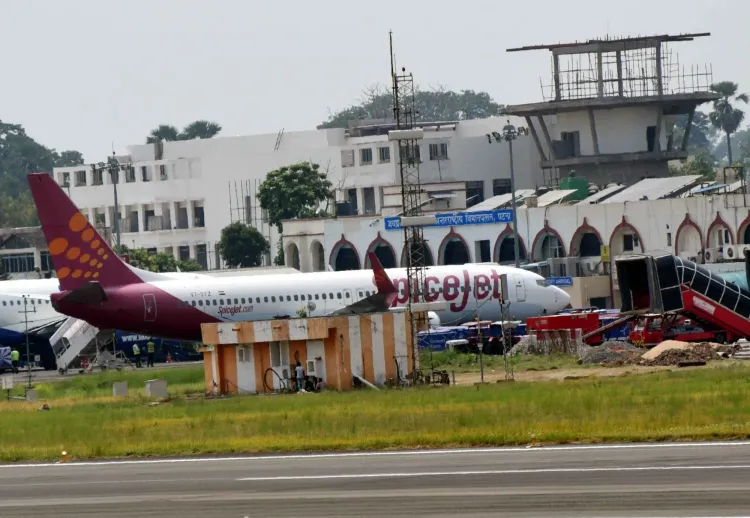Why is SpiceJet Delaying Employee Salaries?

Synopsis
Key Takeaways
- SpiceJet has delayed salary payments for many employees.
- The airline attributes this to a phased disbursement schedule.
- Over 60% of employees received their August salaries on time.
- SpiceJet reported a significant net loss of Rs 234 crore in Q1 FY26.
- Financial struggles are attributed to grounded aircraft and geopolitical issues.
New Delhi, Sep 14 (NationPress) SpiceJet has postponed salary disbursements for a considerable number of its employees. According to the budget airline, this is a part of a “phased disbursement schedule” implemented during off-peak periods, which extends over several days.
Sources indicate that employees earning up to Rs 55,000 are receiving their salaries on schedule, while delays are affecting senior personnel.
A representative from the airline stated that, similar to several other sectors, SpiceJet adheres to a phased disbursement schedule during these off-peak times.
“Our staff is fully informed about this schedule, which has been a longstanding practice, with no changes or deviations,” the spokesperson emphasized.
As of September 7, over 60 percent of employees had already received their salary for August, with the remaining payments being processed according to the established timeline, the airline reported.
According to the airline’s annual report for FY25, it has a workforce of 6,484, which includes 4,894 permanent employees.
In FY25, the budget airline extended an interest-free advance of Rs 32 crore to Chairman and Managing Director Ajay Singh for a five-year term, in accordance with board-approved policies.
The budget carrier reported a net loss of Rs 234 crore in the April-June quarter (Q1) of FY26, contrasting with a net profit of Rs 158 crore during the same period in the previous financial year (Q1 FY25). This steep decline is attributed to a 34.4 percent year-on-year (YoY) drop in operational revenue, plummeting from Rs 1,708 crore to Rs 1,120 crore, as detailed in their stock exchange filing.
The airline attributed the losses primarily to expenses related to grounded aircraft and the costs associated with returning them to service. Furthermore, it highlighted geopolitical tensions with a neighboring country and airspace restrictions in critical markets, which adversely affected leisure travel demand.









